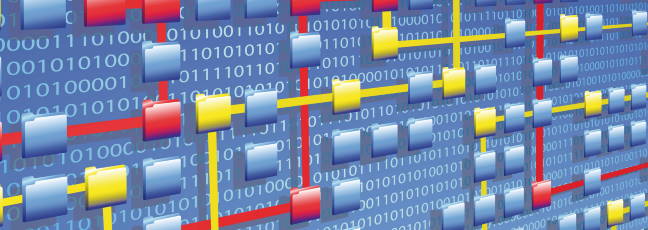End-user’s corner: Uniper’s Journey in process mining and intelligence to improve the energy business
end-users corner exploring newlandA chat with Robert Daamen
 Robert Daamen is Digital Ambassador for Data-Driven Process Analytics and Head of the Process Mining Center of Excellence & Services – Business Change at Uniper. In this interview, he shares with us his experience with process mining at Uniper.
Robert Daamen is Digital Ambassador for Data-Driven Process Analytics and Head of the Process Mining Center of Excellence & Services – Business Change at Uniper. In this interview, he shares with us his experience with process mining at Uniper.
Robert, tell us a bit about yourself and Uniper!
I started as an Electrical Engineer in 2008 at E.ON and was responsible for huge Information Technology projects in what are now Uniper’s power plants and energy assets.
After becoming a Team Lead and Deputy Head of Department, I decided to take on a new role in the Internal Audit department at Uniper’s headquarters located in Dusseldorf. Since then, my responsibility for IT-driven analytics and audit improvements has constantly grown, and I became Digital Ambassador for data-driven process analytics. This was the time when we experienced a lot of “Wow!”- and “Aha!”-moments with process mining. One thing led to another, and my engagement ended up in a full rollout to all of Uniper’s power plants using process mining to improve our plant maintenance process and to support our employees to work safer!
The tool providing the technical capabilities for process mining at Uniper is Celonis. It allows us to transform vast amounts of operational data into actionable insights. Collaborating with institutions like RWTH Aachen and the Fraunhofer Institute, Uniper is harnessing the power of process mining to create transparency in their processes, reducing risks by working more safely and allowing for enhanced decision-making and operational agility.
Process mining has emerged as a critical tool for Uniper, a leading global utility company, to navigate its complex operations. Uniper’s core business involves managing large-scale energy production, which necessitates optimized processes and a focus on efficiency. As the energy sector rapidly transforms, Uniper has embraced process mining, and for that, the Center of Excellence (CoE) was created and established as a Competence Centre within the Business Change (CFO) team. I have the pleasure to lead the CoE, and our core task is to enable Uniper’s businesses to leverage process mining as a service, unlocking new efficiencies and insights across various processes.
Uniper’s process mining and intelligence journey started almost four years ago when I started testing a process mining tool during an internal audit for plant maintenance. Since then, Uniper has successfully implemented 27 processes, with 20 of them currently live and operational, demonstrating the scale of the company’s process mining efforts. These implementations have delivered a double-digit million-euro value to the organization, showcasing a significant financial impact. Moreover, the company’s Employee Management System (EMS) now supports more than 350 active users, reflecting widespread adoption across various departments. The CoE is driven by five internal full-time employees, supplemented by three external experts, ensuring the necessary support for this large-scale transformation.
Finally, Uniper has also connected eight source systems, enabling comprehensive data integration and facilitating end-to-end process insights. With over 800 process alerts sent out, the company has been able to proactively address potential risks and avoid critical situations in its operations, further enhancing process reliability and risk management.
Can you share some success stories of applying process mining in Uniper?
Process mining has demonstrated its value across various sectors of our operations and delivered significant value. One of the key success stories is Uniper’s application of process mining to the optimization of plant maintenance processes. In a complex industry, downtime can lead to substantial financial losses. Identifying inefficiencies and improving equipment availability was thus crucial. Through process mining, Uniper was able to streamline these processes, resulting in increased operational efficiency and reduced maintenance costs. This is exactly what happened, for example, in the recently concluded “Green Belt Project”, where Uniper successfully transformed the preventive maintenance process at the Maasvlakte power plant in the Netherlands.
Similarly, Uniper has applied process mining to improve its human resource recruiting efforts. For instance, we have enhanced recruitment cycle times and ensured that the right talents are onboarded efficiently. With the help of process automation and intelligence, the CoE improved the customer experience, optimized the internal workload management and increased satisfaction with the processes for all the involved stakeholders. Furthermore, hydropower operations have also benefited from process mining, which helped to optimize workflows and reduce process waste, directly contributing to Uniper’s sustainability goals. Next to hydropower, the CoE is talking to our colleagues from the solar, wind and other renewables for further value-adding engagements. Beyond operational improvements, Uniper’s energy sales, IT service management (ITSM), and Uniper’s financial services (UFS) departments have all witnessed significant improvements due to process mining. For example, in Uniper’s energy sales department, process mining has enabled quicker sales process cycles, while in ITSM, it has streamlined incident management, which reduced response times and improved customer satisfaction by providing transparency on raised tickets. UFS has leveraged process mining to enhance internal compliance, ensuring smoother financial operations with fewer bottlenecks.
What do you consider to be the major challenge while using process mining?
While process mining has proven to be transformative, the journey toward a subsequent successful implementation of process changes is not free of challenges. One significant hurdle was to secure collaboration with the Workers Council and ensure that we adhere to data protection regulations. Given the sensitive nature of employee and operational data, addressing concerns around data privacy and regulatory compliance was crucial.
To overcome these challenges, Uniper has adopted best practices such as fostering open dialogue with internal stakeholders, especially the Workers Council, to ensure that all data processing activities are transparent and secure. Engaging in external learning opportunities has also proven beneficial. Uniper participates in conferences like Celosphere, VGB Congress, and the HR community meeting to learn from industry peers and refine its approach. Such interactions allow the company to stay ahead of the curve, gaining insights into new strategies and solutions that can be applied to its process mining initiatives.
Another challenge that we face every day is to report the value the team delivers to upper management, as some of the work we do can’t be transferred into proper value statements. The CoE has committed to a group-wide “value framework” which includes financial (e.g., cost and time reduction, optimizing working capital and cash discounts) and non-financial benefits (e.g., increasing the customer experience, improving the workload management, raising safety and happiness). The implementation backlog of the CoE is mainly driven by delivering high value and process improvements first, followed by strategic and compliance engagements, which are benchmarked and ensure the license to operate.
To conclude: How do you see process mining in the future?
Uniper is committed to advancing its process mining capabilities and sees significant potential in emerging trends such as Object-Centric Process Mining (OCPM). OCPM promises a more detailed understanding of operational data, which will provide deeper insights into the flow of processes across the organization.
As demand for process mining grows, Uniper is also managing an increasing number of requests for its CoE services. This growth has sparked the need for a broader organizational rollout. Engaging a wider group of stakeholders and empowering new users will be critical to achieving full-scale adoption of process mining across business units. Furthermore, the team and I have started a pilot in the commodity and energy trading area, where thousands of trades and deals will be tracked in real time while processing the exchanges between Uniper´s back- and front offices.
Looking ahead, Uniper’s process mining CoE is expected to support critical upcoming projects, like the one for Uniper’s internal audit department, offering further improvements in operational transparency, efficiency, risk reduction and working compliance according to rules and regulations. Process mining is not just a technological innovation for Uniper. It is a critical enabler of operational efficiency, sustainability and future success in the evolving energy landscape.
- ICPM 2024: Some reflections
- ICPM 2024: Program in review
- End-user’s corner: Uniper’s Journey in process mining and intelligence to improve the energy business
- Academic stories: Sareh Sadeghianasl
- Call for papers: AI-Enhanced Business Process Management
- Call for papers: Novel Applications of Blockchain for Information Systems and Business Process Management
- This article has been updated on January 15 2025, 19:10.
- A chat with Robert Daamen

